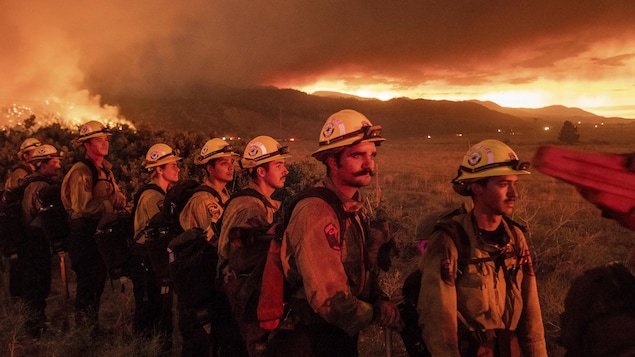Academy Award-nominated director Lucy Walker had just begun her documentary about the largest California wildfire in history when the blaze put out an even larger one.
Today, the horrific Thomas Fire of 2017 is only the seventh in the devastated area and is soon expected to be overtaken by the Dixie Fire, which is currently raging in the forests of Northern California, so climate change is making the fire season longer, hotter, and more destructive.
One of the things I learned from making this movie is that these fires happen all the time, and they happen over and over again
Lucy Walker explained.
This is just terrible proof of the movie’s thesis. I didn’t want to get it right or make a topical movie like that, but that’s where we find ourselves.
Bring your brigade The film opens with poignant images of two fires that, in 2018, destroyed Malibu and Paradise, two California cities with opposite social and economic realities, killing 88 people.
Victims are reluctant to change their behavior
The team closely followed the work of the fire services. The documentary focuses on the personalities and stories of these stubborn soldiers, firefighters, and firefighters who have since returned to live in communities reduced to ashes.
Heroic tales soon come to the conclusion that the people hardest hit by fires — and climate change that scientists say increases their risks — are often the most reluctant to change their behaviour.
For example, Malibu residents have rejected a proposal to raise taxes to hire more firefighters, accusing them of failing to save their homes.
Paradise City has rejected a series of cheap and effective proposals in an effort to avoid future tragedies, ruling out even simple solutions such as having to clear 1.5 meters of space around the houses.
The fact that a city like Paradise is unable to adopt building standards means that people will find themselves in the same situation again.
, appreciates Lucy Walker.
We couldn’t even convince them that these small concessions or small expenses were worth it. I think it was comforting
She told AFP.
Aboriginal practice controlled burning
While addressing the issue of climate change, the film also explores other causes of wildfires, which at first seem easier to correct.
The film presents the seemingly paradoxical idea that large-scale logging – a solution proposed by former President Donald Trump – is making the situation worse.
In Paradise, the Camp Fire killer destroyed logging, and spread quickly thanks to the way trees were planted, wood scraps and the presence of invasive species, such as highly flammable weeds.
Lucy Walker also spoke with indigenous peoples such as the Plains Miwok who, long before the arrival of the inhabitants from Europe, protected themselves from great fires by controlled burning
Consists of small controlled bonfires.
The practice, which aims to get rid of precarious vegetation, is increasingly common in California, although people often oppose it out of fear for their safety or air quality.
individual effect
When we are not in an emergency situation, it is difficult to accept concessions and sacrifices
Twice Oscar-nominated Lucy Walker says, particularly for her documentary waste land, released in 2010.
I don’t think it’s unique to America, but perhaps it is embodied in the individualistic American who uses his rifle.
The current fire season suggests that mentalities must change quickly. At the end of July, California’s scorched area was up 250% from the previous year, but it was the worst year in that state’s recent history.

“Total creator. Evil zombie fan. Food evangelist. Alcohol practitioner. Web aficionado. Passionate beer advocate.”

